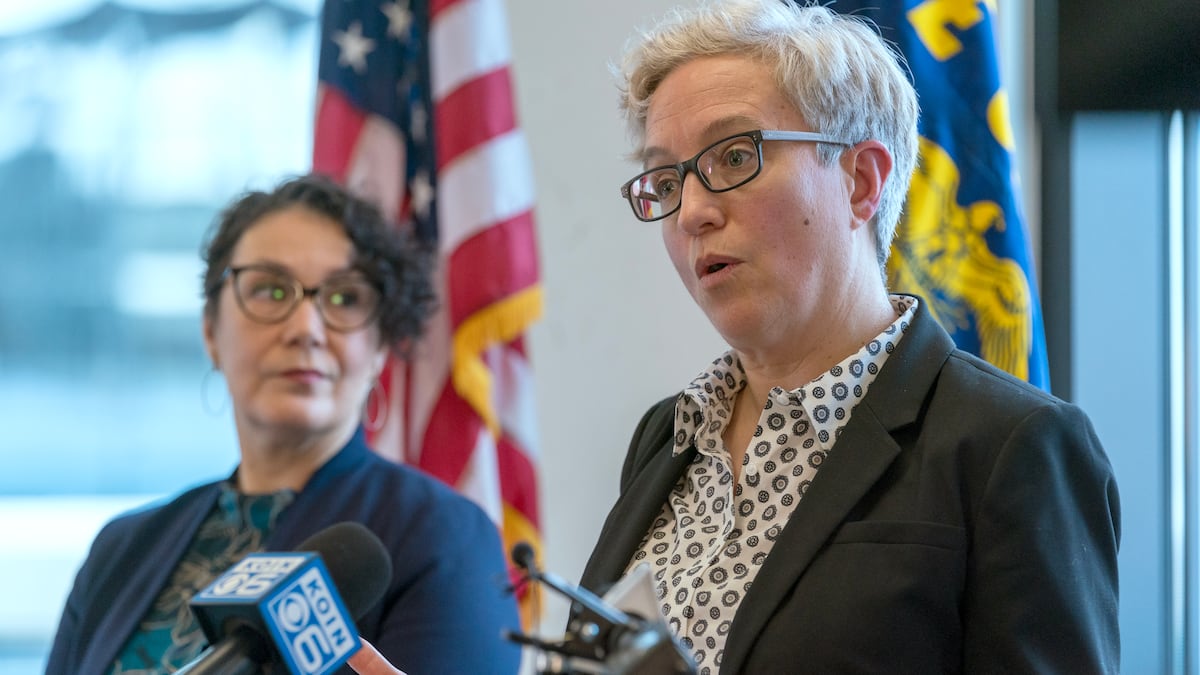My take on this: She has no right to. That was a ballot measure, not a law passed by the Oregon legislature. If they want it repealed, send it back to ballot. Ballot measures are a check and balance on the power of the legislature, they are worthless if the legislature can just reverse them. Suggesting they have the power to do so should be a career-ending event for any elected representative.
I look forward to voting against you in the primaries Kotek.
Maybe I missed it, but I don’t see a reason why they would re-criminalize it. Is there an issue that is stemming from the original decriminalization that this would solve?
Maybe not but certainly more needs to be done to clean up the streets and prevent open use of drugs. Maybe more rehab or whatever support structures to accompany decriminalization but where we’re at right now is not sufficient. Things have gotten worse since 110 was passed but I’m not informed enough to say if it’s a result of 110 or just the natural course of not doing enough to address the problems.
I don’t live in Oregon anymore, but making it illegal again is only going to drive those people into the arms of criminals and other less safe locations. At least if it is in the open EMS could get to them.
I agree that we need to fund treatment more but re-criminalizing it is not going to help that.
I think my perspective is we need to both help/address these folks problems in a humane way but also make the city more usable for the rest of the population. Not only prioritizing homeless folks’s needs if that makes sense. I’m not trying to demonize them at all, just also focus on making the city more usable too.
There have been a couple of sophisticated studies done that show that decriminalization had nothing to do with the increase in overdose, crime or drug use. It just happened at the same time that fentanyl hit the streets in Oregon. The public doesn’t seem to know that, or care. They just want politicians to do SOMETHING about it. This is an easy thing to do.
Do you have links? Again, I realize this is a nuanced situation but imo not one that I think is solved solely through compassion alone. I’m happy to be proven wrong but efforts so far haven’t produced results and the city has continued to move further down the path of increased homelessness, drug addiction, and overall dirty state. Non-homeless citizens should be able to make use of a clean and safe city as well.
I’ll let you Google, but here’s one example.
Thanks for the link. For future reference, making a claim and then saying “do your own research” is a republican tactic. I’m glad you included the reference link in that comment though.
That will never be solved by policing.
Hence my comment…
I thought ballot measures were just guidance to create the appropriate laws?
Ballot measures are laws themselves that voters can pass without needing the approval of the legislature, that’s the entire point. They can also be “straw polls” to give guidance to the legislature, but most are made to create or amend a specific law or provision of the constitution, as M110 did.
I do see the general point that there ought to be a defined way to invalidate an unreasonable ballot measure, but the bar needs to be set high.
Lots of regulations require things like studies on effectiveness and unintended impacts, that might be a good model here. You can’t just override a ballot measure because it’s supported by the other party, but maybe if you have a study demonstrating it lead to a rise in drug abuse and crime, and you can get more than x% …… maybe similar to other veto/filibuster override rules
No, ballot measures directly change the law. Sometimes they direct the legislature to do something, but they are legally binding.


